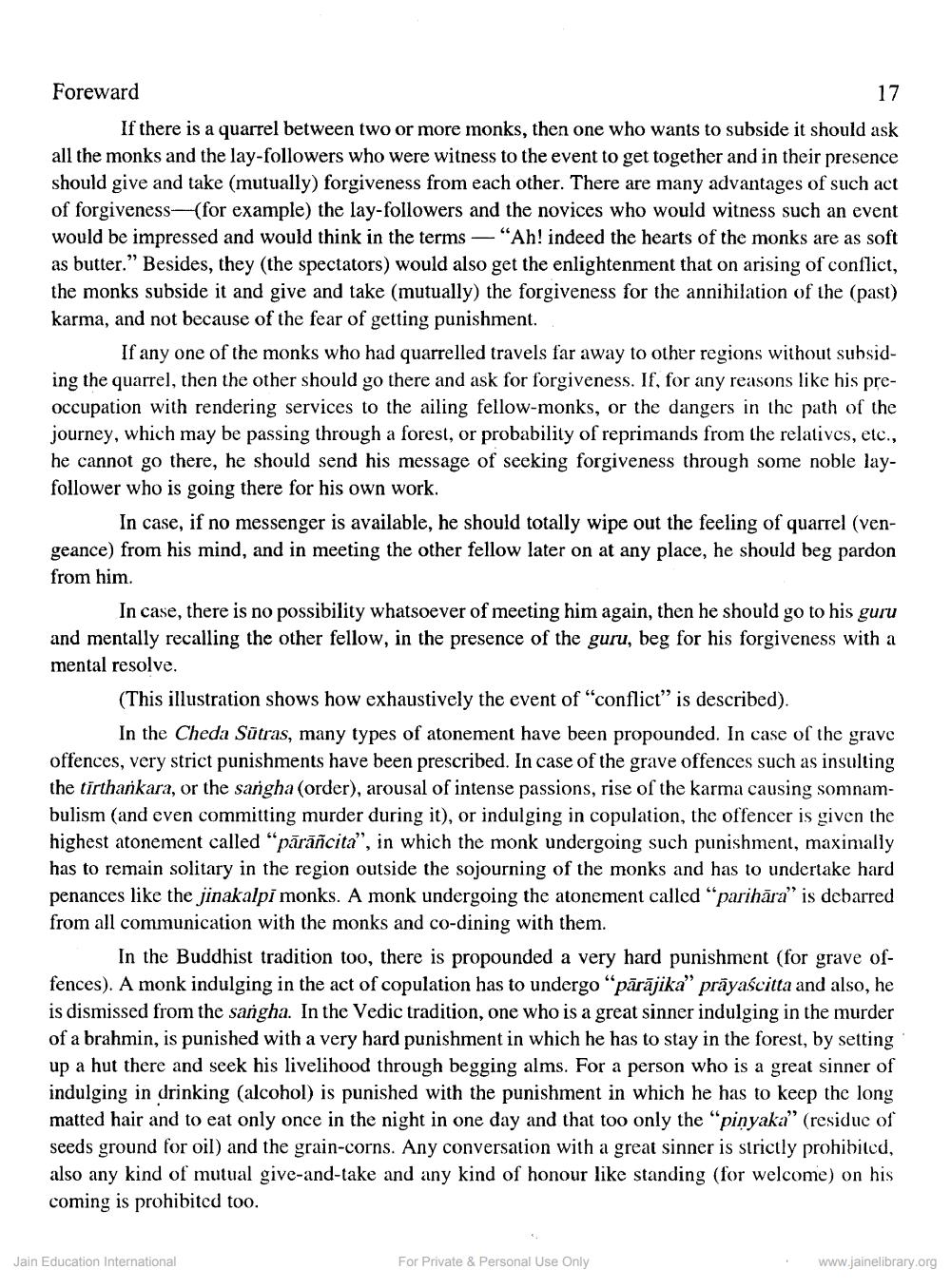________________
Foreward
17
If there is a quarrel between two or more monks, then one who wants to subside it should ask all the monks and the lay-followers who were witness to the event to get together and in their presence should give and take (mutually) forgiveness from each other. There are many advantages of such act of forgiveness (for example) the lay-followers and the novices who would witness such an event would be impressed and would think in the terms - "Ah! indeed the hearts of the monks are as soft as butter." Besides, they (the spectators) would also get the enlightenment that on arising of conflict, the monks subside it and give and take (mutually) the forgiveness for the annihilation of the (past) karma, and not because of the fear of getting punishment.
If any one of the monks who had quarrelled travels far away to other regions without subsiding the quarrel, then the other should go there and ask for forgiveness. If, for any reasons like his preoccupation with rendering services to the ailing fellow-monks, or the dangers in the path of the journey, which may be passing through a forest, or probability of reprimands from the relatives, etc., he cannot go there, he should send his message of seeking forgiveness through some noble layfollower who is going there for his own work.
In case, if no messenger is available, he should totally wipe out the feeling of quarrel (vengeance) from his mind, and in meeting the other fellow later on at any place, he should beg pardon from him.
In case, there is no possibility whatsoever of meeting him again, then he should go to his guru and mentally recalling the other fellow, in the presence of the guru, beg for his forgiveness with a mental resolve.
(This illustration shows how exhaustively the event of "conflict" is described).
In the Cheda Sütras, many types of atonement have been propounded. In case of the grave offences, very strict punishments have been prescribed. In case of the grave offences such as insulting the tirthankara, or the sangha (order), arousal of intense passions, rise of the karma causing somnambulism (and even committing murder during it), or indulging in copulation, the offencer is given the highest atonement called "pārāñcita", in which the monk undergoing such punishment, maximally has to remain solitary in the region outside the sojourning of the monks and has to undertake hard penances like the jinakalpi monks. A monk undergoing the atonement called "parihara" is debarred from all communication with the monks and co-dining with them.
In the Buddhist tradition too, there is propounded a very hard punishment (for grave of fences). A monk indulging in the act of copulation has to undergo "päräjika" prayaścitta and also, he is dismissed from the sangha. In the Vedic tradition, one who is a great sinner indulging in the murder of a brahmin, is punished with a very hard punishment in which he has to stay in the forest, by setting up a hut there and seek his livelihood through begging alms. For a person who is a great sinner of indulging in drinking (alcohol) is punished with the punishment in which he has to keep the long matted hair and to eat only once in the night in one day and that too only the "pinyaka" (residue of seeds ground for oil) and the grain-corns. Any conversation with a great sinner is strictly prohibited, also any kind of mutual give-and-take and any kind of honour like standing (for welcome) on his coming is prohibited too.
Jain Education International
For Private & Personal Use Only
www.jainelibrary.org




